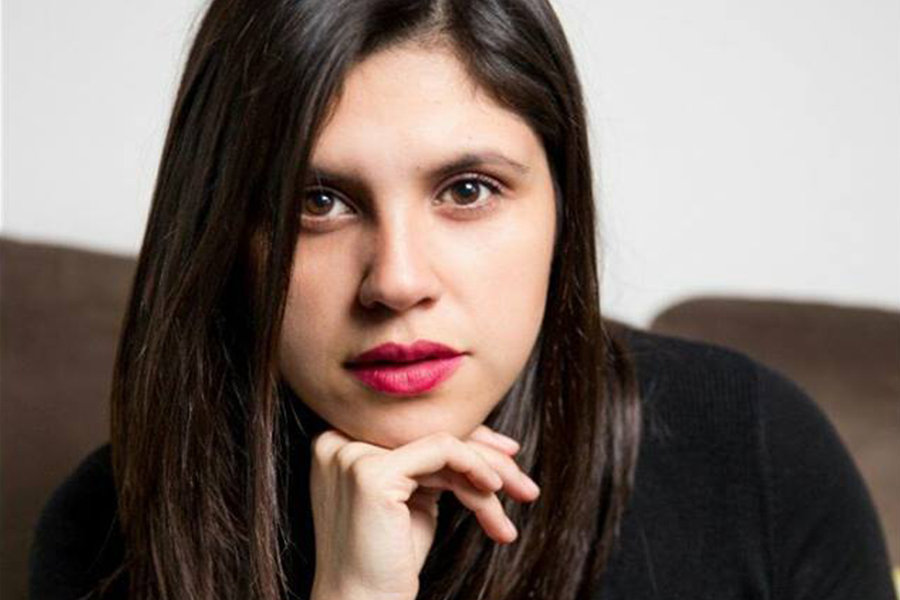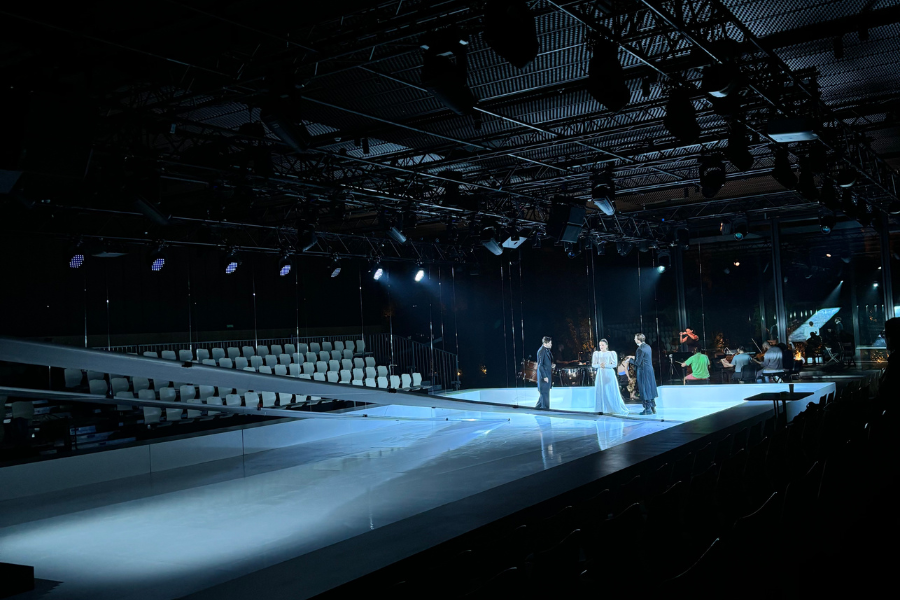First Latin American soprano selected in Young Artists Programme of Royal Opera House

Yaritza Veliz, 26-year-old Chilean soprano, is the first Latin American woman to be chosen to participate in the Jette Parker Young Artists Programme at the Royal Opera House
.
The journey began in May 2017 during the tour in which David Gowland and André Heller Lopes of the Jette Parker Young Artist Programme, made thanks to the organization of the Royal Opera House in colaboration with OLA, to give master classes in four Latin American cities: Theatro Municipal of Rio de Janeiro, Teatro Colón of Buenos Aires, Municipal of Santiago ending at the Teatro Mayor Julio Mario Santo Domingo in Bogotá.
During this tour they met Yarita Veliz, a lyrical singing performance student at the University of Chile, native of Coquimbo (north of Chile), who surprised them at such a level that they selected her to audition in the Young Artist Programme at the Royal Opera House.
.
Yaritza won the 3rd place in the “Magical Lagoon” international opera contest in 2014 and in the same year obtained the 1st place in the national contest “Mujeres en la música” performed by the National Museum of Women in the Arts USA with Mayor University. She has performed at Teatro del Lago de Frutillar (sur de Chile), New York and in Washington DC and at the Castleton C.A.T.S Program Summer Festival. Also in operas such as “Tancredi”, “Le convenienze teatrali”, “La Boheme”, “Jenufa” and “Cenerentola” at the Teatro Argentino de La Plata, Municipal de Santiago and Concepción. And in 2018 it will be Zerlina in “Don Giovanni” and Madalena in “Cristo del Elqui”, two productions of the Municipal de Santiago.
.
Through out your career, what barriers have you found as a Latin American singer?
The biggest barrier is the economic, my family is from the lower middle class, my mom was a kindergarten assistant at the time and she is currently a kindergarten teacher, she graduated very recently, while my dad is a truck driver. From both I learned perseverance and hard work for what you want, I appreciate every day the sacrifices they have made for me and my brother. For them it was very difficult to pay for my career, since it is expensive and besides adding up my expenses in Santiago, it was something that was beyond our reach. In 2013 I wanted to stop studying because we did not have the means, but thanks to the scholarship from the Friends of Municipal Corporation of Santiago I was able to continue my studies. Another barrier is the low assessment of our career, it is a career of 8 and a half years, almost like a doctor, and people see it as something easy or that does not require study and it is not, this race is demanding and very difficult. There is so much young talent waiting for an opportunity, if they had not listened to me I would not be taking advantage of this opportunity in the Jette Parker of the Royal Opera House.
.
How did your passion for the lyric and your training process began?
My passion started when I was very small, I joined the choir of my school Calasanz in Coquimbo city when I was studying basic first with my teacher Enrique Arenas, who was a great support and taught me the base during my first years of musical study. At age 13 I met Mauricio Ibacache and the senator for my region at the time Evelyn Mathey, who sent me to Santiago every weekend to take classes with Patricio Mendez. It was a tough stage because I had to balance between the demands of my school, trips and classes every weekend away from my family in Santiago. At age 13, the Corporación Amigos del Municipal de Santiago received me, I am one of the youngest people to receive the scholarship in lyrical singing. When I was 18 years old I enrolled at Universidad de Chile with my teacher Carmen Luisa Letelier, a very educated woman and maestra, everything I know about interpretation and styles I owe to her. In 2014 I won the Women in Music Contest and that’s where everything was uncovered, before that achievement I got to thinking about retiring from the race, but luckily I did not do it.
.
Tell us about your experience as a woman in the opera world
Women in many areas always feel passed to carry, women for years have seen us as the weaker sex but I think that in this race the difference is not so much noticed. As for the artistic level, they see you the same as men, at no time have I felt discriminated against, and in salaries I do not get involved, because it is a theme of each one.
.
Has any person or organization supported you in the development of your career? And in your experience, what are the main supports that someone who is developing as a singer needs?
The main economic and professional support I have received is fromCorporación Amigos del Municipal de Santiago, and my godmother who has always been by my side, Belinda James. In the field of artistic consultancy I have my teacher Carmen Luisa Letelier and my maestro repertoire Jorge Hevia, who prepares me the roles and helped me with the audition of the Royal Opera House.
.
This career is very difficult, especially for the schedules, missed important dates and commitments to your family; The main support is your parents, if they are with you, you trust more in what you are doing and in the talent you have. In addition to your partner, in this race you need a partner to accompany you, understand, support and contain. But when I am away from them I have a special angel who accompanies me and it is my great contention that is my older brother to whom I attribute all the good things that have happened to me.
.
How was your experience during the ROH master classes?
The master classes were divided between acting and singing, the latter with David Gowland. When I had classes with him, I said “I want to work with him in the future”. He liked my job a lot but I could not get feedback with him since he was working for Jenufa right at that time. Then I saw the application page for Jette Parker and said I should be there.
.
During the classes I realized that there are technical things that one does not notice after so long, according to David each country has its own ways of singing and Chile has a very particular one when singing the “a” and the “e”. I’m lucky that when I teach something I absorb it as a sponge, I eliminate the bad and I keep the good. And together with André we learned about the characters, to delve into them.
.
Chileans are left out because we do not have access to much information about these master classes or workshops or contests, finally we would like to go to listeners because one learns the same.
.
In your opinion, what is the importance of programs like Jette Parker for the development of Latin American lyric talent?
I am lucky to say that I am the first Latin American to enter this program, but the race is done on stage. Our career is very long compared to other countries, they are 8 years old and they should be 4, many times you forget the essentials of the first years. These programs help much more because it is learning by doing. I must say that thanks to the Municipal de Santiago I learned a lot, I feel that this was a very good base to face without fear of the scenarios and enjoy. The most important thing is that the tables teach, not the classrooms.




